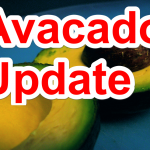History of Search Engines Early Developments (1990-1994) The history of search engines begins with the early days of the World Wide Web. The first search engine, Archie, was created in 1990 by Alan Emtage, a student at McGill University in Montreal. Archie was essentially an index of downloadable directory listings, but it didn't provide the ability to search within files … [Read more...] about A Quick History of Search Engines
SEO Discussion
How big should blog posts be to rank on Google?
The time when it was all about targeted keyword rich, short form content, crank out a few hundred words, has long gone. Creating long form, well researched content is expensive, time consuming and hard work. But what is the evidence that we should create long form content? How do we answer the question, "What size of content will help me rank in … [Read more...] about How big should blog posts be to rank on Google?
SEO is not dead, it’s just no longer fashionable which is a good thing
When was the last time you went to an SEO conference and they taught you to, "Make sure your keyword is in the title tag", or "make sure your keywords are in text and not hidden in a graphic." Probably not for a long time, and there are a number of reasons why we no longer see the basics of SEO taught at SEO conferences. Conferences are about new, cutting edge … [Read more...] about SEO is not dead, it’s just no longer fashionable which is a good thing
Brand will soon be everything in the Avocado Update
I sense a change in the search-space continuum. I think something big is afoot. Something that will play out over a period of the next 12 months. I think search optimisation will change as we know it. It already has grown men weeping into their pot noodle after their 1,000th disavow submission. The SEO is now a glorified clerical worker. Bad link yes. Bad … [Read more...] about Brand will soon be everything in the Avocado Update
How is Link Building Doing?
A few charts from Google Trends over regarding a few search terms within the industry Past 12 months of searches for "link building". Looks pretty stable. What about over a longer time period? Looks like it peaked in 2012, and now back to 2009. Seems stable the last 12 months though. Content marketing seems to be the latest buzzword, but surely that's a … [Read more...] about How is Link Building Doing?
Should going Whitehat be an ethical decision or a Business decision?
First published 2011 To Go White Hat or Black Hat SEO is not an ethical decision it's a business decision The aim of the white hat seo is to unnaturally manipulate the Google results page in their favour. The aim of the black hat seo is exactly the same. Where it differs is the white hat keeps within the Google guidelines and the black hat does not. Therefore it is … [Read more...] about Should going Whitehat be an ethical decision or a Business decision?



